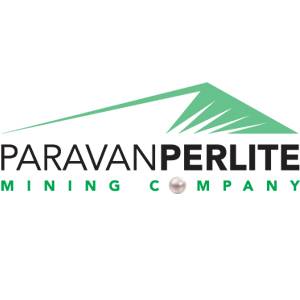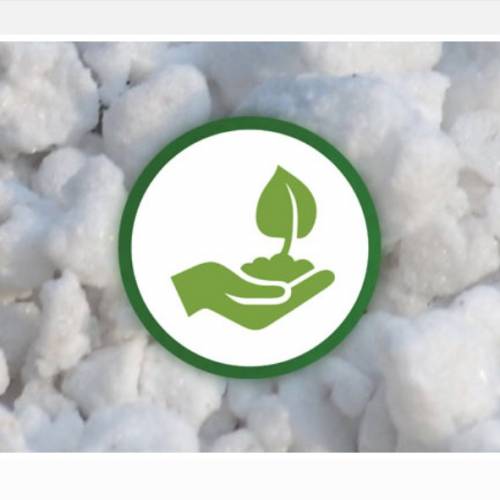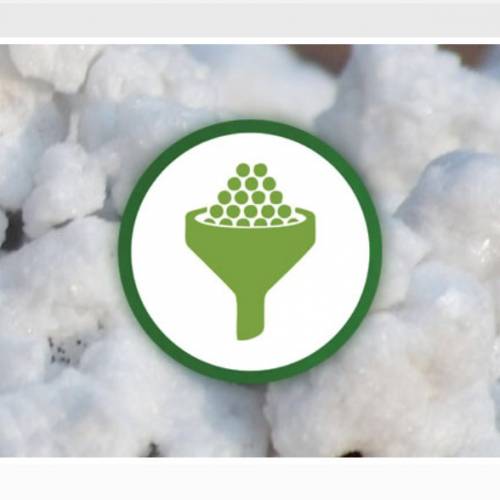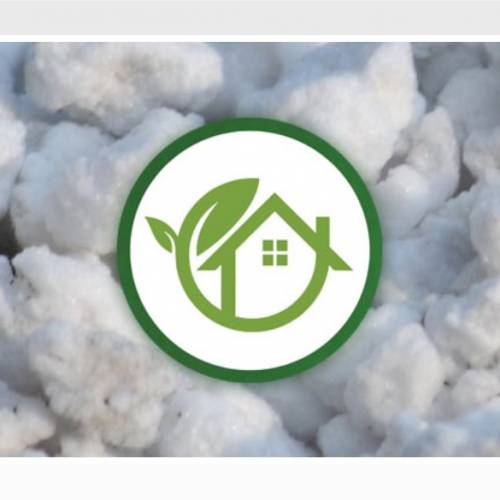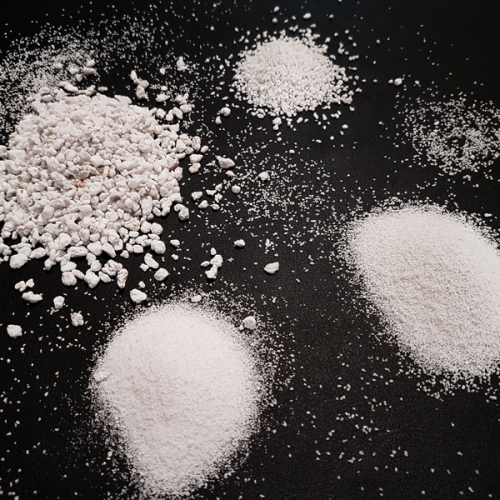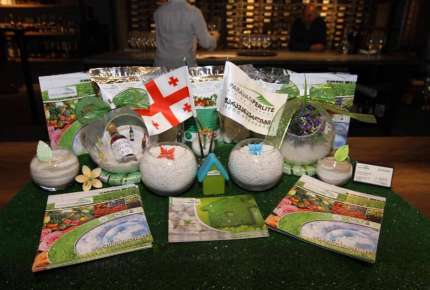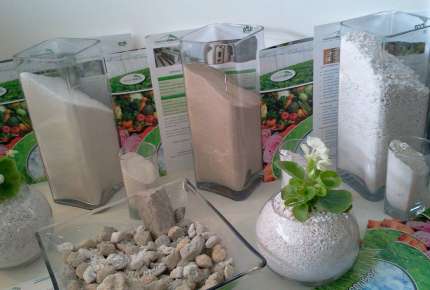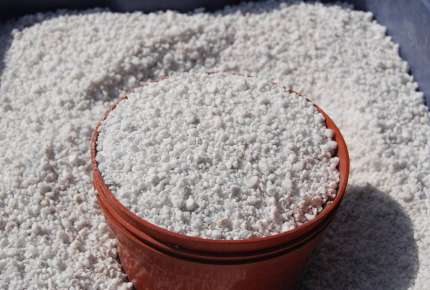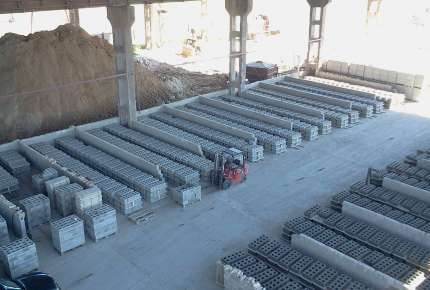AGROPERLIT is an environmentally friendly material with a size of 0.63-5mm, a bulk density of 90-130 kg, a moisture content of not more than 5%, obtained from natural perlite rock of volcanic origin. Agroperlite is an environmentally friendly, free-flowing, porous, friable, light, durable material. Able to absorb liquids up to 400% of its own weight. Biologically resistant: not susceptible to decomposition and decay under the action of microorganisms, is not a favorable environment for insects and rodents. Chemically inert: neutral to alkalis and weak acids, sterile, non-toxic, does not contain heavy metals, pH – 7.0, neutral. Agroperlite has an excellent property to absorb up to 400% of water (by weight), to reliably hold it and give back this moisture to the roots of plants.
In the full cycle of growing vegetables, Agroperlite provides excellent drainage and at the same time the required moisture retention capacity. It does not caking and does not soak, prevents the loss of roots when cutting cuttings and seedlings from the environment of perlite due to its ability to stick to the roots.
Perlite in floriculture is a very sterile medium, filler for mixtures. It is in Agroperlite that most plants with a weak root system are grown and rooted. Agroperlite accumulates in itself nutrients along with water and gradually gives them to the roots of the plant, that is, the nutrients introduced with irrigation are not washed out, but accumulate in the grains of agroperlite, and are gradually consumed by the plant.
Agroperlite is a natural moisture accumulator that improves the structure of the soil and creates a perfect air and moisture exchange. Agroperlite is the accelerated germination of seeds before planting in the ground (when placed in wet Perlite); protection of the plant (especially the root system) from significant temperature fluctuations in the spring and wintering in open ground; soil baking powder to retain moisture in the soil. Many plants, for example, should not be in a standing immobile nutrient solution which often leads to their death, therefore Agroperlite is added to the composition of the artificial substrate, which prevents the formation of a fixed solution.
Agroperlite is widely used for engineering tomato cultivation. In this case, the composite soil must meet certain requirements: it must have a high porosity (65-75%), the lowest moisture capacity 45-50%, air consumption 20-25%, density – 0.4-0.6 g / cm2. Therefore, the composition of the soil injected components with high porosity and permeability. As a rule, the following ratio of components in greenhouse soil is used: – agroperlite – 20-30% by volume – peat – 50-60% by volume – compost – 20-30% by volume.
Traditionally for growing vegetables in greenhouses used mineral wool. However, it should be noted that mineral wool cubes tend to retain too much moisture compared to other more porous substrates, such as perlite. Perlite has a strong capillary system that lifts water at the same rate at which water is absorbed by the plant.
Agroperlite ensures the presence in the mixture of a larger amount of air while retaining the nutrients contained in the soil and gradually giving them to the plants, and perlite is a very sterile medium that improves the porosity and drainage properties of the soil. Today, in most greenhouses, commercial producers of seedlings and garden plants have found that perlite is an ideal medium for growing plants from cuttings. It is important to keep the perlite substance moist and keep cuttings out of direct sunlight.
The end result depends on the quality of the seedlings. Rooting cuttings are best in a mixture of perlite and sphagnum. The advantages of perlite include its complete sterility (no rot), it is completely reliable here and absolutely does not require sterilization.
In agriculture, perlite is used for conditioning and improving soil structure, moisture retention, as a carrier of mineral fertilizers. Virtually all of Norway’s forests of the last 30 years have been grown from seedlings using Agroperlite. Application of Agroperlite reduces compaction of the substrate making it more loose and breathable. Holland grows tomatoes both in bags with perlite and in special polyethylene pipes – an increase of 7-10%. In the US, Agroperlite is actively used for the improvement of urban greenery, green nurseries, golf courses and stadiums. A soil mixture consisting of 70% sand, 20% agro-perlite and 10% nitrogumus is used.
City gardens, parks and squares are grown on substrates whose composition mainly consists of agroperlite and peat. The low thermal conductivity of agroperlite protects the roots of plants from external temperature drops. In the heat, the soil with agroperlite does not overheat, and with the onset of cold weather it does not freeze as much as ordinary earth. Such quality is very important for landscape design plants in early spring and autumn. Especially for those of them who winter in an open ground.
When growing tomatoes, the use of Agroperlite instead of mineral mats allows you to increase the yield by 7-10%. The use of agroperlite allows you to reduce, and in some cases eliminate the use of fertilizers and insecticides altogether. Agroperlite is capable of retaining large radionuclide molecules that enter the soil and nutrient solutions.
Most of the European countries use perlite substrates for growing cucumbers. They are packaged in special plastic bags of up to 60 cubic meters. dm, in which there are 4-6 holes for plants. Bags are placed in special wooden containers. The nutrient fluid, which is sprayed with a certain excess, permeates the top layer of perlite and serves as a kind of reserve in case of supply interruptions.
Agroperlite is ideal for storing vegetables, fruits, tubers. Products can be laid in standard boxes of 10, 15, 20 kg. layer by layer, overlapping each row of fruits with a layer of agroperlite, the thickness of which, depending on the size of the fruit, ranges from 2 to 5 cm. Perlite absorbs the gas exchange products of vegetables and fruits, prevents the development of rotting processes and does not cause insects and rodents.


